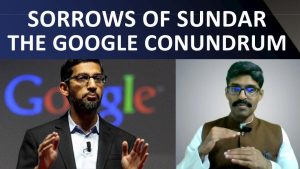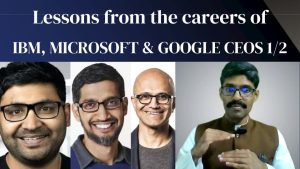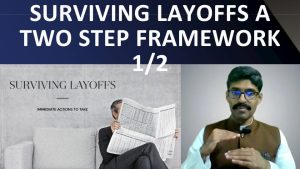The Insider Guide to Careers
Insider information, secrets and tips about getting hired and building careers. For employees and job candidates.
What is common between Michelangelo, Picasso, Illayaraja, Edison, Ennio Morricone, Viswanathan Anand and AR Rahman? These people spent their lifetimes doing exactly one job, where their passion was. They all started as nobodies in their lives and, over decades of intense hard work, transformed into the superstars they are today. It was many decades of effort in just one space. Michelangelo was involved in art forgery when he struggled to make money early in life. He would imitate early Italian art to make a quick buck. AR Rahman was kicked out of secondary school in Chennai as he could not afford the fees. Edison was homeschooled because he was expelled for being a difficult student. Time, patience, effort and talent transformed these pieces of coal into the diamonds they later became.
It is not about where they began but how they reached the heights of achievement after intense work for decades. There was no shortcut to success. Yes, their talent and brilliance did shine across in their tasks. Each one of the people was involved in a creative art of music, sculpture or science. All of them lived and died by their latest project. An artist cannot talk about the glories of the past. Every project requires 100% focus, and they had to ensure a seemingly endless output day after day were blockbusters in the marketplace. It is like writing an exam every week throughout your life. These maestros compete with innumerable others and must prove themselves the best every time. Of course, nobody can predict or control public sentiment. All you do is give it the best shot and hope people appreciate it. Picasso created a genre for himself and did exceptionally well in the marketplace.
Compare this with people today working in companies. They move jobs every two to three years across companies, sectors and locations. Every time they move, they have to build credibility from scratch. The perpetual moving becomes an albatross that prevents the employee from ever achieving greatness. The maestros I mentioned earlier started at rock bottom and climbed up step by step, day after day. After some time, they started making good money and later could command whatever they wanted from the money (at the point they were the best). For most employees, age is not their friend. Their compensation expectations increase with time, and companies think that at some point, the older employee should just be replaced by a much cheaper young employee. There is no personal brand or credibility-gain with age.
In Korea, these employees are called “Hwesawon,” a derogatory name for office workers. Most people are nothing but Hwesawons in the workplace, eternally fearing being fired. God forbid that one is fired after reaching the position of an executive (Vice President and above). If that happens, that is the death knell for an executive’s career. A VP cannot get fired and still have a career.
There is a cumulative effect of skill gain over time. Often, students and employees choose jobs based on only one factor – compensation. Any compensation over the midpoint should be enough for most people; there is no need to aspire for very high compensation. The focus should instead be on skills one would gain in the workplace and learning that happens. Only a wise person would rank skills above greed. The most common scenario for most people is that a company picks them after their undergraduate degree. The lucky few choose the company with the highest salary. This is how everyone selects a company or sector. Later, the same people find that they have little interest in mastering the space they are in. This should not be a surprise, considering that the selection was never based on interests or skill-match.
If people choose a company and role wisely and spend much time doing the work they love, they can have an excellent career. This is how Tim Cook became the CEO of Apple and AM Naik became head of L&T. This is also why some companies only choose leaders who have worked there for life.
Even when doing an MS, MBA or PhD, students still do not wisely choose their company for full-time work. Salary and location are the most valued factors when choosing companies, but these should not be considerations for a person early in their career. It is a gigantic tragedy that people do not make informed decisions and, therefore, are not able to flower to the best of their ability. Hopefully, when you pick your next job, you will consider the points I mentioned in this article.
For more such articles, also follow my Substack and Careerbolt channels.



